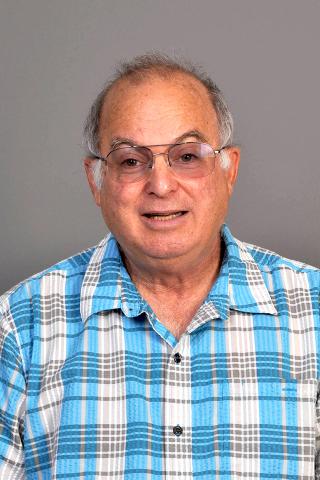
Professor Emeritus, Ph.D., University of Oregon, Eugene
George H. S. Singer is a professor emeritus in the Department of Education where he worked from 1995 to 2021.
George H.S. Singer was a member of the Special Education, Disability, and Risk research focus area. Dr. Singer’s interests in Special Education began when he took a year out of college to teach English in a traditional Islamic school in southern Morocco where one of his students was blind. He was intrigued with the challenge of how to teach him and was also appalled at the social role for people with disabilities in the town where he lived. The one available “job” appeared to be begging in front of the mosque. Dr. Singer went on to work as a vocational trainer at a Goodwill Program before enrolling at the University of Oregon program to earn a teaching credential and Master’s degree. Armed with a teaching certificate, he taught for three years in public schools programs and then wrote and obtained a federal grant to start a rural group home to serve children with severe behavior problems who had been in public congregate care institutions. This work led him back to the University of Oregon to obtain a Ph.D. in Special Education. During graduate school he worked as a researcher at the Oregon Research Institute where he became a Research Scientist for the next nine years. Dr. Singer had the wonderful opportunity to learn from mentors at the Institute while running research projects. His experiences in the group home project made me very interested in what families would need in order to keep children at home and out of institutions. Since 1985, questions surrounding families and persons with disabilities have been a primary research interest.
From 1991-95 he was the director of the Hood Center for Family Support at the Dartmouth Hitchcock Medical School where he and his colleagues conducted studies about self-determination and family support. He taught seminars on the literature and research on this topic and is also responsible for teaching classes on the history of disability, and the research and teaching methods for learners with severe disabilities. From 1995-2000 he conducted a federally funded project in a local hospital to introduce Family Centered Care practices in the neonatal intensive care unit. At the same time he continued to work on positive behavioral interventions in homes, schools, and communities. Another interest concerns ways of making research accessible and useful to parents, teachers, and service providers. With Dr. Mike Gerber he also co-directed Caselink, a three-year research project aimed to develop and test multimedia, interactional, and group based, instructional materials to be mounted on the Web. Another set of interests concerns how people with disabilities may become more self-determining beginning in childhood. His students are also exploring questions related to ethnicity, linguistic minority status, and immigration as these factors impact people with disabilities and their families. Other areas of interest concern social policy issues regarding families who support family members who require extra assistance to participate in normal community life. Finally, Dr. Singer is interested in the philosophy of social science and its intersection with actual day-to-day practice of research. He sees his work as primarily aimed to provide pragmatic insights, methods, materials, and policies that will be useful in the lives of people with disabilities and their families. In his private life he is a published poet, furniture maker, father, and fan of golden-haired retrievers.